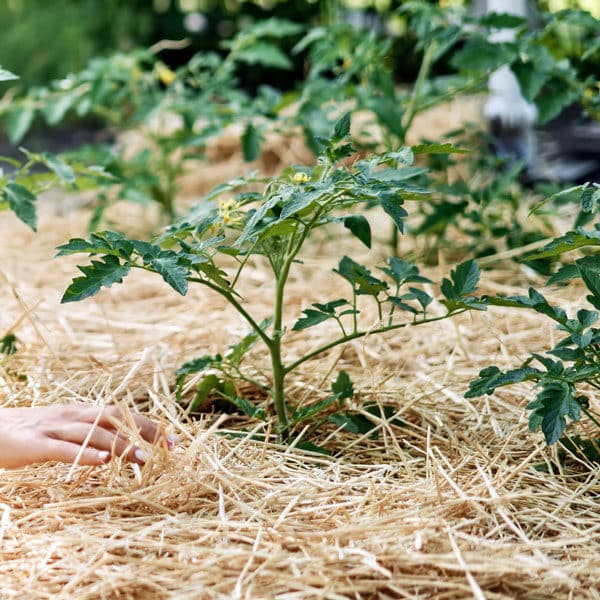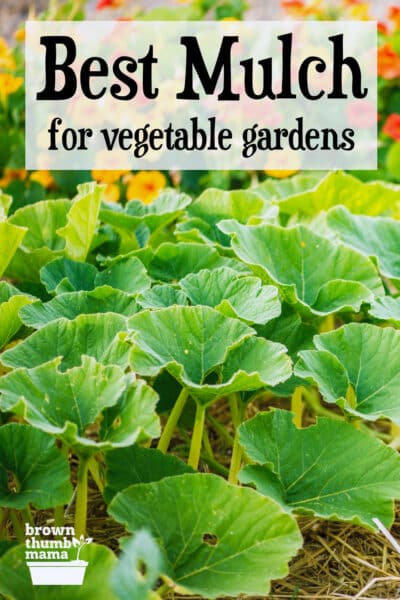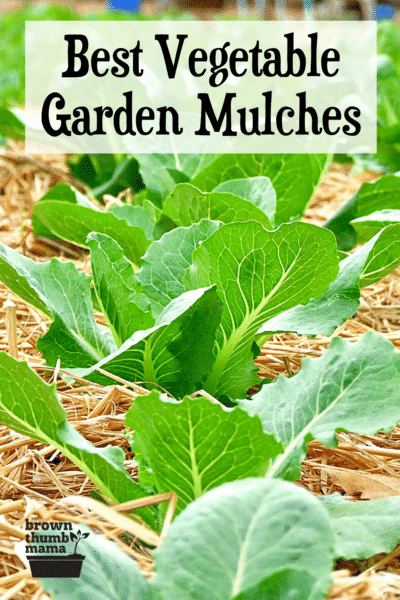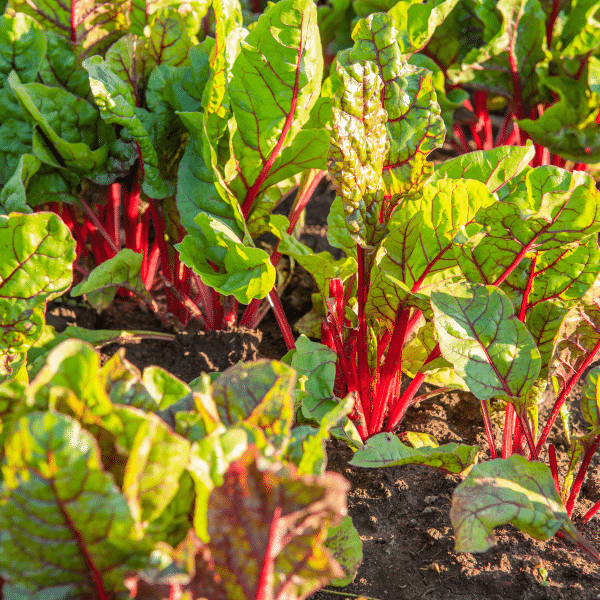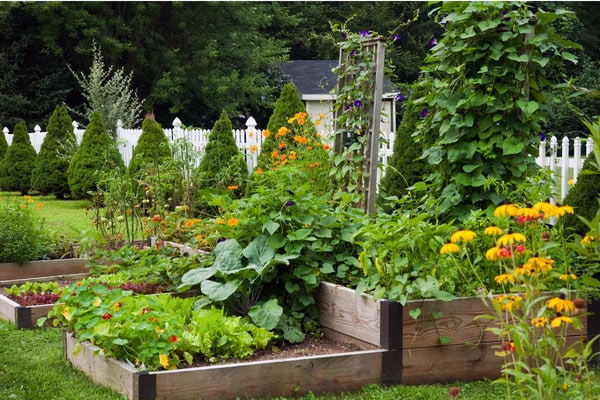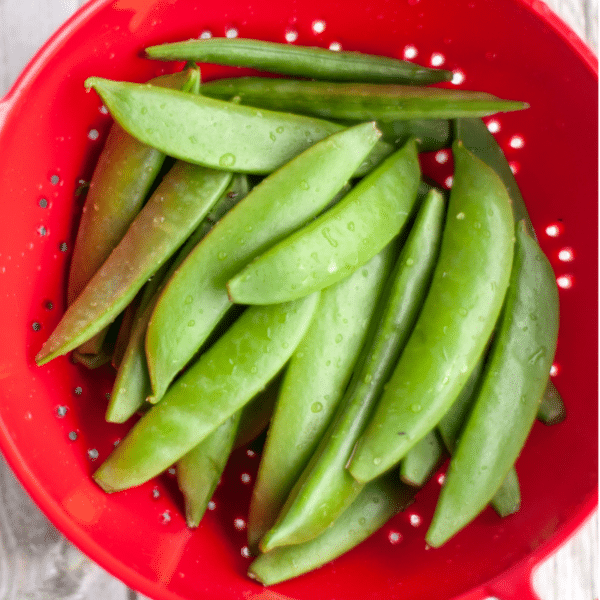Using the right mulch can take your vegetable garden to a whole new level, with better harvests and fewer weeds. Learn the best natural mulches for your vegetable garden, and which ones to avoid.
Why Mulch Your Vegetable Garden?
Mulching your garden is a vital step in growing healthy vegetables. It’s one of the best all-natural ways to protect your plants and help them thrive. There are lots of benefits to using mulch in your garden–here are some of the best reasons to mulch your plants:
- Mulch acts as a barrier to retain moisture in garden soil and container soil.
- Mulch protects the soil (and roots of your plants) from drastic temperature shifts.
- It prevents soil loss from runoff and erosion.
- Mulch suppresses weeds, and smothers weed seeds.
- It can also prevent the spread of soil-borne disease.
- Over time, high quality natural mulch will break down and add nutrients to the soil.
Which is Better: Compost or Mulch?
A lot of people use the terms “compost” and “mulch” interchangeably. It’s true that both compost and natural mulch are great for your veggie garden, but they play two very different roles:
- Compost is decomposed organic material of various types. It’s good for adding nutrients to the soil and improving soil texture and quality. Learn how to start composting here. Compost is mixed into the soil, usually before planting.
- Mulch is specific organic material that has not decomposed. It’s meant to protect soil, retain water, and control weeds. Mulch is placed on top of the soil around the base of plants (about 1-3 inches thick).
So you can and should use both compost and natural mulch in your vegetable garden. They just serve two different purposes.
Popular Mulches to AVOID in the Vegetable Garden
Not all mulches are created equal. Some are just plain yucky (see the first one below) and others just aren’t suited for a veggie garden. Here are the mulches you want to avoid using in your vegetable garden:
Rubber Mulch
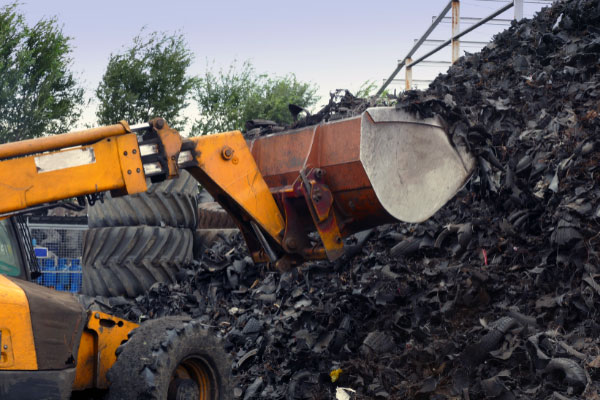
Rubber mulch from recycled tires is sometimes considered eco-friendly because it’s recycled and can be used in large-scale applications. However, it also comes with some very big problems:
- Rubber mulch doesn’t decompose. This means it doesn’t add nutrients to your garden like natural mulch. It also means you can’t safely work it into the soil. It simply doesn’t function like regular mulch in a vegetable garden.
- Rubber mulch contains many toxins. Recycled tires are not natural whatsoever. Commercial rubber is processed and treated with chemicals you definitely don’t want in your garden, and this mulch may also contain heavy metals that leach into the soil.
Wood Chips
Although wood chips or shredded bark are natural, they’re not the best mulch for your garden veggies. Wood chips have the tendency to absorb nitrogen in the surface layers of soil.
This isn’t a problem for trees, shrubs, and other perennials with deep roots, but it can cause issues with shallow-rooted veggies and annuals. Nitrogen is important for plant growth, so it’s best to avoid wood chips or bark in your vegetable garden. (And yes, this applies to all wood chip mulches, including pine bark mulch.)
Another problem with wood chips? Many commercial wood mulches are chemically treated or dyed, and these chemicals can leach into the soil. So even though wood is a natural material, sometimes the wood used for mulch has been treated with substances that are definitely NOT eco-friendly. Skip those dyed black, red, or blue wood chips, please!
Black Plastic
In my area, there are many strawberry farms with black plastic weed cloth placed over the soil. While it seems like weed cloth or landscape fabric would be a good idea, they are not a good choice for your garden. It’s a pain to install and remove, they tend to break down over time (and make a mess), plus they don’t allow fertilizers in or earthworms out.
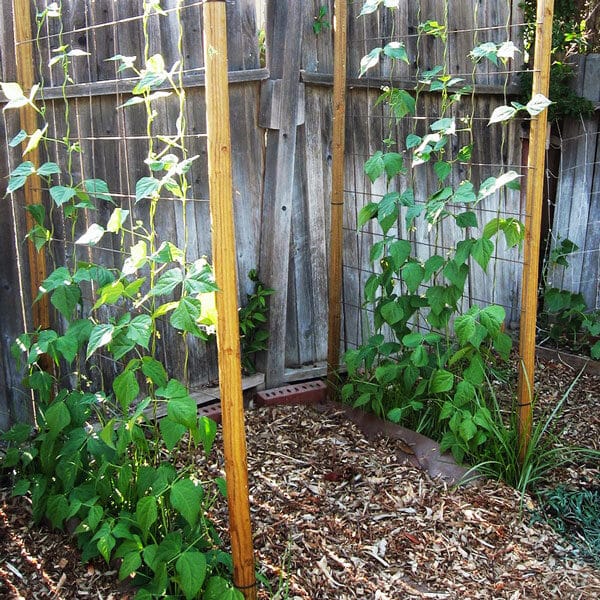
Best Vegetable Garden Mulches
Now it’s time to dig into 😉 the topic of which types of mulch will work best in your vegetable garden. Remember, because veggie gardens have newly established plants with shallow roots (and they’re plants you intend to eat!), you want to be extra careful about choosing the right mulch. Here are some of the best all-natural mulch ideas to try:
Pine Needles / Pine Straw
Pine straw is an excellent organic mulch that’s both eco-friendly and budget-friendly. It’s especially good for plants that love acidic soil, such as celery, carrots, cucumbers, squash, pumpkin, and peppers. Pine straw tends to weave together, so it won’t blow away too easily. It also decomposes slowly and will last a long time in garden beds or containers.
Straw (Seedless)
Regular straw (from hay) is also a great all-natural mulch. It’s inexpensive and easy to apply. It also does a great job of protecting the soil and retaining moisture. The biggest drawbacks of straw are the possibility of seed contamination (which can lead to weed growth), and its tendency to blow away with any breeze. If you apply it in thick layers and spray it with water, it will stay put better.
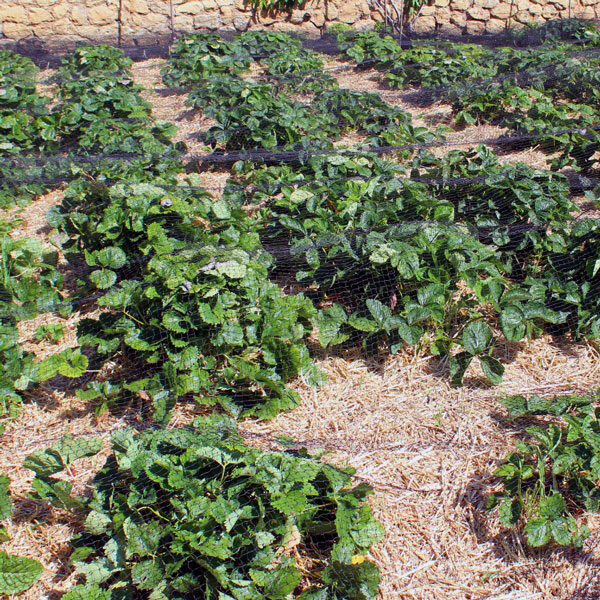
Shredded Leaves
Dry, shredded leaves make a nutrient-rich, organic mulch that both feeds and protects the soil. It’s also a great way to “recycle” fall leaves. Leaf mulch doesn’t last as long as other mulches because it decomposes quickly, but that’s also why it’s perfect for adding nutrients to soil. Just make sure the leaves are dry and shredded (you can shred them with a lawn mower). Apply a thick layer of shredded leaves to the garden or container and spray them with water so they don’t blow away easily.
Dry Grass
Grass clippings are also another good material to “recycle” from your yard. Grass clippings are free if you bag them from your own yard, and they decompose easily to add nutrients and organic matter to the soil.
Two things to remember when using grass clippings as natural mulch:
- Don’t use clippings from grass that has been chemically treated with fertilizers or insecticides. You don’t want those chemicals in your veggies!
- Dry grass clippings work best. Freshly cut grass can hold too much moisture and create a matted, moldy mess in the garden. I let the clippings dry on the grass and then rake them up when I need them.
Cardboard
This probably sounds like a strange recommendation, but cardboard is actually a great biodegradable mulch. It’s a very strong barrier if your garden is prone to weeds. It’s perfect for using on garden paths or for “sheet mulching” to suppress weed growth in a new garden bed.
Use plain brown cardboard for mulching projects–nothing waxy or glossy. The easiest way to remove packing tape and labels, which aren’t biodegradable, is by spraying the cardboard with water so it’s a bit damp. Peel off the tape and labels, then spray the cardboard again once it’s in place. The water will help the cardboard mold to the surface of the soil and stay in place.
Have you tried any of these natural vegetable garden mulch ideas? Share your tips and tricks in the comments below!

